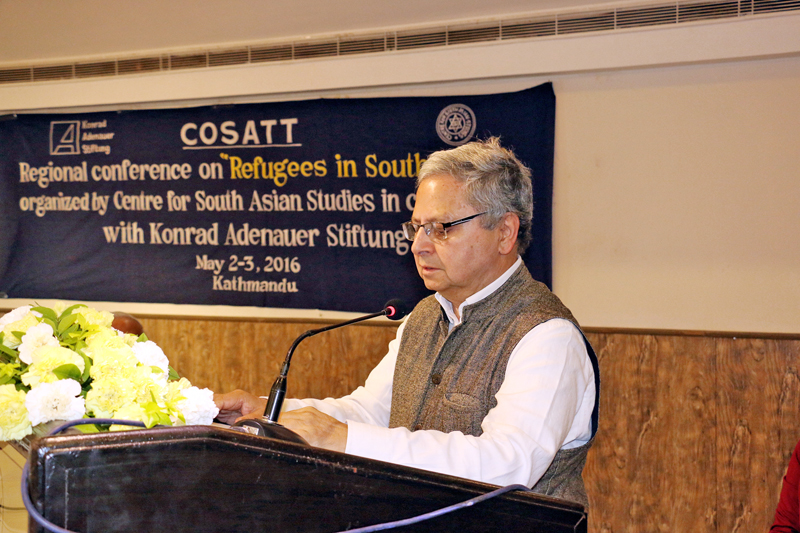Experts stress need to make refugee problem a SAARC agenda
Kathmandu, May 2
Experts from South Asia region have expressed concern regarding why the refugee issue couldn’t become an agenda for SAARC meetings as all of its member-states have been grappling with this crisis for long.
During a two-day regional seminar that kicked off in the Capital today on the theme of ‘refugees in South Asia’, they drew the attention of all SAARC countries to put in concerted efforts to resolve the refugee crisis in this region.
The programme was jointly organised by the Centre for South Asian Studies (CSAS) and the Consortium of South Asian Think Tanks, where Chairman of National Human Rights Commission Anup Raj Sharma said Nepal had dealt with the problem of Bhutanese refugees before most of them were resettled in eight overseas countries, including the United States in early 2008.
Sharma added that the national human rights watchdog, NHRC, was coordinating with the United Nations High Commission for Refugees to resolve this issue and also with other refugee problems, including the Tibetan one.
Director of CSAS Nishchal Nath Pandey said the refugee problems was widespread across the South Asia sub-continent including in Pakistan, Bangladesh, India, Afghanistan, and Nepal and all should join hands to deal with it.
Over 100,000 Nepali speaking Bhutanese people, known as Lhotshampas were evicted forcibly from Bhutan in the early 1990s.
Presenting his paper, journalist Lekhanath Pandey observed that resettled Bhutanese consider their relocation in the eight advanced countries as not a permanent solution to the Bhutanese refugee crisis.
He opined that Thimphu has to allow all the refugees to return, if they wish to and it has to repatriate all the remaining refugees who have not opted for third-country resettlement.
Dhruva Jaishankar, foreign policy fellow at Brookings Institution India Centre said that in South Asia, many people have been forced to take refuge due to various political, religious, and cultural reasons.
As many as one-and-a-half dozen papers will be presented and discussed by experts from Nepal, India, Bangladesh, Pakistan and Sri Lanka during the two-day workshop.






